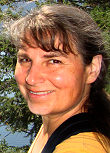
Menu
- Welcome
- 2024 Writing Courses and Workshops/Retreats
- News and Events
- Bringing Through Your Gold
- Consultations
- Mentoring Programs
- Reviews
- Support for Writers – Grants
- Workshops/Retreats
- Writing Practices
- Personal Creative Retreats on Salt Spring
- Webinars
- Silence Gathering in Blue Air
- Coaching/Editing
- The Poppies
- Notes on Writing and Life
- Poetry/Prose
- Books
- Work with Me
- CONTACT & NEWSLETTER
- About Lorraine
- Forums
- Arc of Light – poems
- Bringing Through Your Gold
- Book Accelerator Sessions
- Coming Home to the Heart
Website © 2010 Lorraine Gane | created by earth spirit creations | powered by WordPress [Admin]